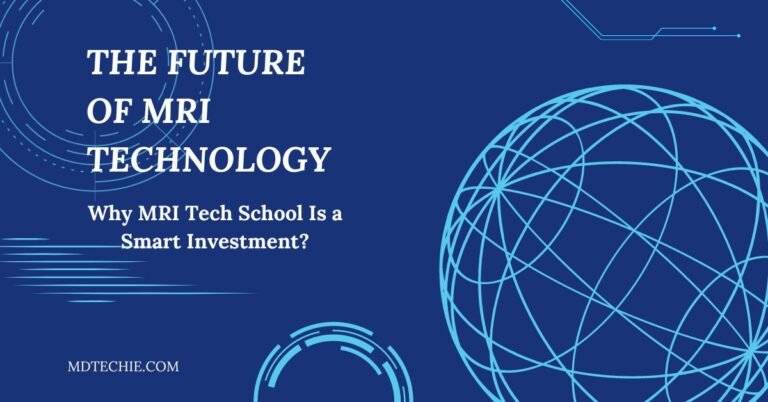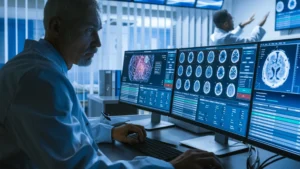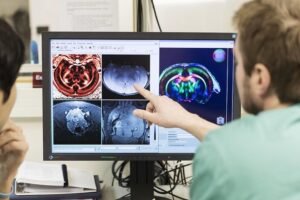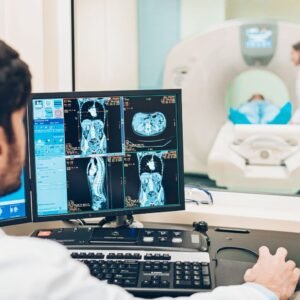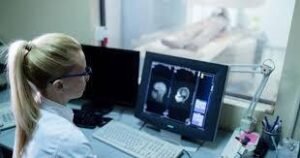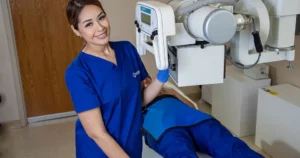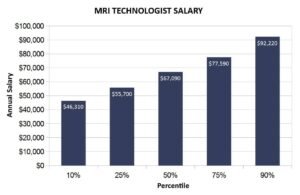The Future of MRI Technology
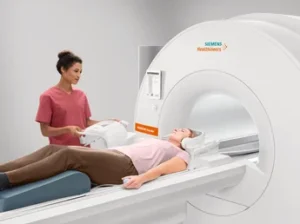
Many aspiring healthcare professionals are discovering that a career in MRI technology presents a unique opportunity for growth and advancement. With rapid technological advancements reshaping the medical imaging landscape, investing in MRI tech school not only equips you with critical skills but also positions you for a rewarding career.
As healthcare facilities increasingly seek qualified MRI technologists, you can secure your place in this dynamic field and contribute meaningfully to patient care. This blog post will examine into the factors that make MRI tech education a strategic choice for your future.
The field of MRI technology has evolved significantly, positioning itself as a vital component in modern medical imaging. As healthcare demands innovative solutions, MRI serves as a non-invasive method to visualize internal structures, offering unparalleled detail that is critical for accurate diagnosis and treatment.
With advancements in digital imaging and software, MRI continues to adapt and expand its capabilities, making it an exciting area for aspiring technologists.
The State of MRI Technology in Today’s World
One of the most significant aspects of MRI technology today is its increasing integration with other diagnostic methods. This multidimensional approach enhances the accuracy of medical examinations, catering to diverse medical needs. The continuous advancements in MRI contribute to improved patient outcomes and technological sophistication.
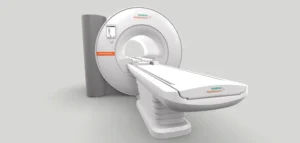
Principles of Magnetic Resonance Imaging
An important element of MRI technology is the principles of magnetic resonance imaging, which exploit the magnetic properties of atoms, particularly hydrogen. When subjected to a strong magnetic field, these atomic nuclei align and emit signals that are transformed into detailed images by computers.
This non-invasive technique provides key insights into soft tissues, making it invaluable in various medical diagnoses.
Technology has advanced significantly, allowing MRI systems to use various techniques such as functional MRI (fMRI) and diffusion MRI, which help visualize brain activity and track water movement in tissues, respectively.
These innovations expand your understanding of both anatomy and physiological processes, making MRI a powerful tool in personalized medicine.
Types of MRI Machines and Their Uses
Principles of MRI machines vary, with several types designed to cater to specific medical needs. Common types include closed MRI machines, open MRI machines, functional MRI, and extremity MRI systems. Each type serves unique functions and is chosen based on patient requirements and imaging goals.
| Type of MRI Machine | Primary Use |
| Closed MRI | Comprehensive whole-body imaging |
| Open MRI | Patient-friendly alternatives for claustrophobic patients |
| Functional MRI (fMRI) | Brain activity and blood flow assessment |
| Extremity MRI | Limbs and joints imaging |
| Dedicated Cardiovascular MRI | Heart and blood vessel analysis |
- Closed MRI systems generally provide the highest resolution images.
- Open MRI systems make the process more comfortable for anxious patients.
- Functional MRI offers insight into brain functions and connectivity.
- Extremity MRI allows for focused imaging of limbs while reducing time in the machine.
- Thou as you explore these options, consider which aligns with your career aspirations.
Resonance imaging technologies each have their specifications, enhancing imaging techniques. As a future MRI technologist, being familiar with these various machines will equip you with the knowledge required for effective patient care and accurate diagnostics.
Understanding these machines will also allow you to communicate effectively with both healthcare teams and patients, instilling confidence in your skills and professionalism.
| Image Quality | Patient Comfort |
| High resolution in closed systems | Lower anxiety in open systems |
| Specificity in cardiovascular assessments | Faster scans in extremity MRI |
| Functional imaging capabilities | Broader access for MRI on the move |
| Thou can enhance diagnostic accuracy significantly. |
- MRI technologies offer a plethora of options designed to meet diverse healthcare needs.
- Understanding the operational differences can greatly impact patient experiences.
- Educating patients about machine types fosters trust and comfort.
- Advanced degrees and training will ensure you’re ahead in this evolving field.
- Thou should take the time to explore the options available in your future career.
The Evolution of MRI Technology
One of the most fascinating aspects of medical imaging is its evolution, particularly in MRI technology. Understanding the journey of MRI can provide valuable insights into its future and the opportunities that await you in this field.
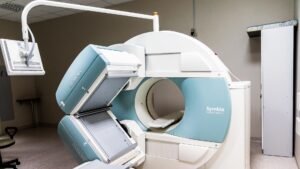
Historical Background of MRI
Historical advancements in MRI technology began in the 1970s with the development of nuclear magnetic resonance (NMR). This breakthrough laid the foundation for MRI, allowing for non-invasive imaging that improved diagnostic capabilities.
As researchers recognized the clinical potential, MRI emerged as a revolutionary tool in medical imaging, offering unprecedented insights into the human body.
Key Milestones and Breakthroughs
Historical milestones in MRI technology have significantly transformed healthcare. In 1977, the first clinical MRI scan was performed, which sparked rapid adoption and advancements in the technology.
Subsequent developments, such as functional MRI (fMRI) in the 1990s, enabled doctors to visualize brain activity, opening new avenues for diagnosis and treatment planning.
With each milestone, MRI technology has continued to progress, leading to improved image quality and diagnostic accuracy. The advent of high-field MRI systems has enhanced resolution, while innovations such as contrast agents and multi-parametric imaging have expanded the scope of what MRI can achieve.
These breakthroughs have not only improved patient outcomes but have also elevated the role of the MRI technologist in delivering high-quality healthcare.
Current Trends in MRI Advancements
Evolution in the field of MRI is characterized by continuous enhancements that cater to both patient experience and technical performance. From the emergence of artificial intelligence to streamline processes, to advanced software that improves imaging techniques, the landscape is rapidly changing.
Current trends emphasize the integration of AI and machine learning for enhanced image analysis and automated workflows, enabling you to work more efficiently. Additionally, the development of portable MRI machines is making this technology accessible in various healthcare settings.
As the demand for skilled MRI technologists grows, being aware of these advancements positions you uniquely for a thriving career in this dynamic field.
The Role of Artificial Intelligence in MRI
On the front lines of innovation, artificial intelligence is dramatically transforming MRI technology. AI algorithms can assist in image analysis, reducing the workload for technologists while improving diagnostic accuracy.
This integration of AI is set to revolutionize how images are interpreted, making it a crucial aspect of your training as an MRI technologist.
To harness the full potential of AI in MRI imaging, technologists like you will need to understand how these systems work. By incorporating machine learning and deep learning techniques, AI can enhance image quality and automate routine tasks, allowing you to focus more on patient care.
Training in these advancements is crucial, as AI capabilities become increasingly integral to the role of MRI technologists.
Integration with Other Imaging Modalities
Role integration with other imaging modalities such as PET, CT and ultrasound is set to change the landscape of medical imaging. The ability to combine data from multiple sources can provide a more comprehensive view of a patient’s health.
As an MRI technologist, understanding these integrative technologies can enhance your skill set and make you a more versatile professional in the field.
Features like hybrid imaging systems that combine MRI with PET (Positron Emission Tomography) are becoming more prevalent, allowing for simultaneous functional and anatomical imaging. This convergence enhances diagnostic capabilities and improves treatment planning.
By enrolling in MRI tech school, you will learn how to operate these multimodal systems effectively, making you an invaluable asset to any healthcare setting.
The Growing Role of MRI in Healthcare
Now more than ever, MRI technology is becoming integral to modern healthcare. With advancements in imaging capabilities, it plays a crucial role in diagnosing and managing a variety of diseases.
This growing reliance on magnetic resonance imaging highlights the importance of stellar training for MRI technologists, ensuring they are well-equipped to meet the evolving needs of healthcare.
MRI in Disease Diagnosis and Management
On the frontlines of healthcare, MRI scans provide unparalleled insights into the human body, enabling the early detection and precise management of conditions such as tumors, neurological disorders, and musculoskeletal injuries.
The detailed imaging allows healthcare professionals to tailor treatment plans effectively, improving patient outcomes and safety in healthcare practices.
Expanding Applications Across Specialties
Role of MRI continues to expand across various medical specialties. Originally critical in neurology and orthopedics, today, MRI is increasingly utilized in cardiology, oncology, and even pediatric medicine.
This diversification speaks not only to the versatility of the technology but also to the growing need for skilled professionals who can navigate these specialized applications.
Another notable trend is the integration of MRI with other imaging modalities and technologies. As imaging techniques converge, MRI offers complementary insights that enhance diagnostic accuracy.
For example, combining MRI with functional imaging can provide dynamic information about a patient’s condition, further driving the demand for qualified MRI technologists who can operate sophisticated imaging equipment across various fields.
Importance of MRI in Patient Care
Importance of MRI in patient care cannot be overstated. Its non-invasive nature and ability to produce detailed images allow for diagnosis without the risks associated with more invasive procedures. This aspect is particularly significant in terms of patient comfort and safety, making MRI an invaluable tool in contemporary medical practice.
It is crucial to recognize that the role of MRI technologists extends beyond just operating machines. They are critical in ensuring the quality and accuracy of scans, which directly impacts diagnostic decisions.
As healthcare embraces these advanced imaging techniques, your expertise in MRI will become vital in supporting patient-centered care and improving overall health outcomes, underscoring the smart investment that MRI tech school represents for your future career in healthcare.
The Demand for MRI Technologists
Your choice to pursue a career as an MRI technologist comes at a time of unprecedented demand. With healthcare continually evolving and advancing technologies becoming more integral to patient care, skilled professionals in MRI technology are vital for ensuring accurate diagnoses and treatment plans.
Job Market Insights for MRI Technologists
To understand the landscape for MRI technologists, it’s vital to note that the job market in healthcare is expanding, with projections indicating a significant growth in the demand for MRI services.
As facilities upgrade their imaging technologies and patient volumes increase, skilled MRI professionals are becoming indispensable in the healthcare environment.
Factors Driving Demand for MRI Skills
Skills in MRI technology is driving the demand for qualified professionals in this field. Various factors contribute to this growing need:
- Advancements in MRI technology that require specialized training.
- An increasing emphasis on early diagnosis and preventive healthcare practices.
- The rising elderly population, which often requires more imaging services.
Recognizing the professional skills required can position you favorably in this evolving landscape.
Plus, as the healthcare industry embraces more advanced imaging modalities, the demand for technologists who are proficient in new technologies continues to rise. The expansion of specialty imaging services also offers further opportunities. Consider the following factors contributing to demand:
- Transition towards more patient-centric care.
- Growth in outpatient imaging centers.
- Regulatory changes that enhance the quality and accessibility of imaging services.
Recognizing these trends can help you align your training and skills with market needs for a promising career.
Challenges and Opportunities in the Workforce
Skills gaps in specific areas can create both challenges and opportunities in the MRI workforce. As technological advancements progress, it requires ongoing education and upskilling for existing professionals, which can lead to resource shortages if many technologists do not adapt swiftly.
Technologists in the field may face pressure from an increasing workload and the necessity to stay abreast of the latest innovations. However, this also presents a chance to position yourself as a leader in the sector. Opportunities exist for advancement, specialization, and even involvement in developing new imaging roles as you pursue continuing education and expertise in MRI technology.
The Financial Aspects of MRI Tech School

Keep in mind that investing in your education is crucial for your future as an MRI technologist. The costs associated with MRI tech school can vary widely, depending on the institution, program length, and additional fees.
Generally, students can expect to pay tuition ranging from $10,000 to $30,000 for a comprehensive program that prepares you for certification and a successful career in medical imaging.
Tuition and Costs of MRI Technology Programs
On average, MRI technology programs typically last between one to two years, impacting your total expense. It’s crucial to consider not only the tuition fees but also additional costs like textbooks, lab fees, and equipment. Understanding these variables can help you plan financially for your future in this rewarding field.
Return on Investment: Salary vs. Education Costs
To evaluate whether MRI tech school is a worthwhile investment, it’s critical to compare your potential salary with the costs of education.
MRI technologists earn an average salary of around $74,000 per year, with experienced professionals potentially earning upwards of $90,000, depending on location and specialization.
With this financial overview in mind, you can clearly see the return on investment that pursuing a career in MRI technology offers. Given that the job market for MRI technologists is booming, your salary could outweigh your education expenses within just a few short years of starting in the field, making it an attractive option for long-term financial stability.
Financial Aid and Scholarship Opportunities
Costs can be daunting, but there are various financial aid and scholarship options available to help ease your burden. Many institutions offer financial assistance programs, grants, and scholarships specifically for students pursuing careers in healthcare, including MRI technology.
Opportunities abound for prospective MRI technologists looking for financial support. Researching scholarships tailored to medical imaging programs can help reduce your educational expenses significantly. Moreover, federal student aid programs, personal loans, and payment plans can provide additional financial flexibility, making it more manageable to invest in your education without crippling debt.
Why Choose a Career as an MRI Technologist
Many individuals are drawn to the field of MRI technology for its potential to make a significant impact on patient care. As the demand for skilled MRI technologists continues to rise, there are several compelling reasons to consider this rewarding career path.
Job Security and Stability in Healthcare
Healthcare is renowned for its stability and job security, and the demand for MRI technologists exemplifies this trend. As advancements in medical imaging technology and an aging population drive an increased need for diagnostic services, you can feel confident that your skills will be in high demand.
Diverse Career Paths and Specializations
Career opportunities in MRI technology are abundant and diverse. As an MRI technologist, you can choose to specialize in areas like pediatric imaging, neuroimaging, or even research roles in advanced imaging techniques.
To enhance your expertise and broaden your career horizons, you might consider pursuing additional certifications or specializations in fields such as magnetic resonance angiography (MRA) or functional MRI (fMRI).
This flexibility allows you to tailor your career to your interests, making your journey in medical imaging not just fulfilling but also dynamic and varied.
Importance of Lifelong Learning in the Field
Stability in the healthcare field also comes with the necessity of continuous education and adaptation to new technologies. As an MRI technologist, staying updated with the latest advancements will ensure you remain a valuable asset to your healthcare team.
Learning never stops in medical imaging. By participating in workshops, obtaining certifications, and being involved in professional organizations, you can keep pace with the advancements in your field, ultimately enriching your professional knowledge and enhancing career opportunities.
Your commitment to lifelong learning will not only benefit your career but also improve patient outcomes in the ever-evolving world of healthcare.
The Benefits of Attending MRI Tech School
Despite the challenges of choosing the right career path, investing in MRI tech school offers numerous benefits that can significantly enhance your professional journey in medical imaging.
Comprehensive Curriculum and Training
Benefits of an MRI tech program include a well-rounded education that combines theoretical knowledge with practical skills. You’ll cover imperative topics such as anatomy, imaging techniques, and patient care, ensuring that you are fully prepared to succeed in your career.
Hands-On Experience with Advanced Equipment
Advanced MRI tech schools provide you with invaluable hands-on experience using state-of-the-art imaging equipment. This practical exposure allows you to develop confidence and proficiency in operating machines that are imperative to your future role.
Advanced Equipment Exposure
| Equipment Training | Interact with cutting-edge MRI technology. |
| Simulation Practices | Engage in simulated scenarios to refine your skills. |
| Real-World Experience | Gain insights into day-to-day operations in clinical settings. |
Hands-on experience is crucial in the healthcare field, especially in MRI technology, where precision and technique matter. You will learn to handle MRI machines, understand safety protocols, and implement best practices that are vital for high-quality imaging and patient care. This immersive training boosts your confidence, making you an attractive candidate for employment after graduation.
Hands-On Skills Development
| Team Collaboration | Learn to work with a healthcare team effectively. |
| Patient Interaction | Develop your communication skills with patients. |
| Technical Proficiency | Master techniques for optimal imaging results. |
Preparing for Certification and Licensure
Curriculum at MRI tech schools is designed to equip you for certification and licensure exams. You will receive comprehensive training that meets national standards, ensuring that you are ready to take the necessary examinations when you complete your program.
The preparation you receive at MRI tech school directly contributes to your future success. Many programs offer exam review sessions and tailored study materials that align with the requirements of national certification boards. By focusing on both practical skills and exam readiness, you position yourself for a rewarding career in a fast-growing field.
Selecting the Right MRI Tech School
Not all MRI tech schools are created equal, and making the right choice is crucial for your career. It’s necessary to consider various factors that will impact your education and expertise in the medical imaging field. This section will guide you through the vital criteria needed to select the best MRI tech program that aligns with your career goals.
Criteria for Accreditation and Quality
With the rapid advancements in MRI technology, choosing an accredited MRI tech school is vital. Accreditation ensures that the program meets stringent educational standards, preparing you for a successful career.
Verify the school’s accreditation from recognized organizations, as this can also affect your eligibility for job placements and certifications.
Evaluating Program Offerings and Faculty
Quality of education relies heavily on not just program offerings but also the expertise of the faculty. You should evaluate what specific courses and hands-on training are included in the curriculum, as these experiences will shape your practical skills and knowledge of advanced MRI technologies.
Tech advancements in the field of medical imaging demand that you learn the latest techniques. Investigate the qualifications of the faculty members, especially their practical experience in MRI technology, as their industry insights can enhance your learning experience and prepare you for real-world challenges in healthcare settings.
Importance of Student Support Services
Evaluating the support services provided by the MRI tech school can significantly enhance your educational experience. These services may include academic advising, mentoring, job placement assistance, and tutoring, all of which are tailored to help you succeed throughout your studies and into your career.
Importance of a robust support system cannot be understated, as it aids in navigating the complexities of your education and transition into a professional role. Schools that invest in student support services often foster a sense of community and commitment to student success, making your educational journey more rewarding and effective.
Networking and Career Development Opportunities
All aspiring MRI technologists should recognize that networking and career development are crucial aspects of a successful career in medical imaging. Establishing a strong professional network can significantly enhance your job prospects and expand your knowledge of the field.
By actively engaging with industry professionals, you can gain insights into the latest technological advancements and practices, positioning yourself as a competitive candidate in a rapidly evolving job market.
Building Professional Relationships in the Industry
Industry connections are imperative for growth in the medical imaging field. Attending workshops, conferences, and local events allows you to meet experienced professionals who can provide invaluable advice and guidance. These relationships can lead to job opportunities and partnerships that can shape your career path in MRI technology.
Mentorship Programs and Resources
One of the best ways to navigate your career as an MRI technologist is through mentorship programs. These initiatives pair you with experienced professionals who can offer personalized guidance, share valuable industry knowledge, and help you refine your skills. Mentorship can also open doors to internships and job placements that align with your career goals.
Networking plays a significant role in pairing you with mentors who have firsthand experience in the MRI field. These connections can help you understand the responsibilities of an MRI technologist and provide insights into various career paths available to you.
By fostering relationships with mentors, you gain access to a wealth of resources that will ease your transition from education to employment, ensuring you make informed choices throughout your career journey.
Job Outlook and Salary Expectations
After considering the advancements in MRI technology and the increasing demand for healthcare services, the job outlook for MRI technologists remains robust. As healthcare facilities adopt more sophisticated imaging technologies, the need for skilled professionals to operate these machines will continue to rise. This growth signifies a favorable employment environment for those entering the field.
Average Salaries for MRI Technologists
For MRI technologists, salaries are competitive and often commensurate with experience and geographic location. On average, MRI technologists can expect to earn between $65,000 and $90,000 annually, depending on various factors such as region and specialization.
Factors Influencing Salary Variances
Factors that influence salary variances for MRI technologists include:
- Geographic location
- Experience level
- Type of healthcare facility
- Specialized skills or certifications
This means that by gaining experience and potentially acquiring additional certifications, you can significantly increase your earning potential as an MRI technologist.
Technologists who work in metropolitan areas or specialized medical facilities often command higher salaries than those in rural settings. The demand for specific skills, such as proficiency in advanced imaging techniques or the ability to work with diverse patient populations, can also impact your salary.
This creates a unique opportunity for you to tailor your career path according to your interests and desired income level.
Advanced Roles and Higher Earnings Potential
Higher possibilities for earnings can be found in advanced roles within MRI technology, such as MRI supervisor, manager, or educator. Many technologists choose to specialize further, enabling them to command salaries significantly above the average.
- MRI Supervisor
- MRI Safety Officer
- MRI Research Coordinator
Salary Comparison by Role
| Role | Average Salary |
| MRI Technologist | $65,000 – $90,000 |
| MRI Supervisor | $75,000 – $100,000 |
| MRI Safety Officer | $80,000 – $110,000 |
To maximize your earning potential, pursuing advanced certifications and taking on leadership responsibilities can be highly beneficial. Specialties, like cardiac MRI or pediatric imaging, not only enhance your skill set but can also lead to significant salary increases.
- Pursuing additional certifications
- Gaining leadership experience
- Choosing a high-demand specialty
Enhancement of Career Prospects
| Advanced Certifications | Potential Earnings Increase |
| Cardiac MRI Certification | $10,000 – $15,000 |
| Pediatric Imaging Certification | $8,000 – $12,000 |
Ultimately, by strategically enhancing your qualifications and positioning yourself in advanced roles, you can ensure a fulfilling and prosperous career in MRI technology.
The Impact of Technological Advancements on MRI Roles
For aspiring MRI technologists, staying informed about the latest technological advancements is crucial. As MRI technology evolves, so do the roles and responsibilities of those in the field. Automation and AI are streamlining many processes, shifting the focus to more complex patient care and requiring new skill sets that enhance your expertise and adaptability.
Automation and New Skill Requirements
With the rise of automation in MRI imaging, your role as a technologist is shifting toward a greater emphasis on critical thinking and patient interaction. You’ll need to develop skills in analyzing data and utilizing advanced imaging software to complement automated processes effectively.
Work Environment Changes Due to Technology
For MRI technologists, technological advancements are transforming the work environment. Enhanced imaging technology allows for increased efficiency and better patient outcomes, while integrated systems facilitate smoother communication within healthcare teams.
Impact on your work environment is significant, as the introduction of cutting-edge technologies leads to more collaborative settings. You may find yourself working alongside radiologists and IT specialists in real-time, utilizing advanced imaging systems that improve workflow.
This evolution fosters a team-oriented culture, allowing you to contribute to diagnostics and treatment in a more integrated fashion, ultimately enhancing patient care.
The Potential for Remote Imaging Services
Technology is unlocking new avenues for remote imaging services, allowing you to provide care from virtually anywhere. This flexibility not only broadens the scope of your practice but also meets the needs of patients in underserved areas.
Changes in the landscape of remote imaging are paving the way for a more patient-centered approach to healthcare. As an MRI technologist, you may have the opportunity to perform exams remotely, send images for analysis to specialists, and receive real-time feedback.
This capability not only enhances efficiency but also allows you to reach a wider patient demographic, making a significant impact on the industry and transforming how care is delivered.
Preparing for a Successful Future in MRI Technology
Not only is a career in MRI technology rewarding, but it also offers substantial growth potential. To set yourself on the path to success, it’s important to focus on acquiring the right skills and knowledge. This preparation will not only ensure your proficiency in the field but also help you stand out among a growing pool of MRI technologists.
Essential Skills for Future MRI Technologists
Skills in communication, patient care, and technical expertise are important for future MRI technologists. You’ll need to effectively interact with patients to alleviate their concerns while also demonstrating a thorough understanding of MRI equipment and procedures. A combination of these skills will enable you to provide optimal care and operate advanced MRI technology confidently.
Preparing for Certification Exams
Any aspiring MRI technologist must prioritize preparation for certification exams. These exams validate your knowledge and skills, ensuring that you meet the high standards of the healthcare industry. By dedicating time to study the relevant material and engage in hands-on practice, you will be better equipped to succeed.
Plus, consider enrolling in exam preparation courses or study groups that focus specifically on MRI topics. Utilizing practice tests and study resources will not only enhance your understanding but also boost your confidence. Having a solid grasp of the exam format and content can significantly increase your chances of passing on the first attempt, paving the way for a successful career.
Staying Up to Date with Industry Changes
UpToDate knowledge of emerging technologies and industry changes is crucial as an MRI technologist. The field of medical imaging is continually evolving, and staying informed ensures you provide the best care possible while maximizing your job performance.
Future advancements in MRI technology, such as improved imaging techniques and patient safety measures, will regularly reshape your responsibilities. Engaging in continuous education, attending workshops, and following relevant journals and publications will keep you updated on the latest trends, thereby enhancing your expertise and making you a valuable asset in any healthcare setting.
FAQs
What are the current advancements in MRI technology that make it an exciting field to enter?
The field of MRI technology is rapidly evolving with numerous advancements that enhance image quality and patient safety. Innovations such as higher magnetic field strengths (3T and beyond), improved gradient systems, and advanced imaging techniques like functional MRI (fMRI) and diffusion tensor imaging (DTI) are becoming more common.
These advancements allow for faster scans and better resolution, enabling technologists to capture detailed images for more accurate diagnoses. Moreover, ongoing research in artificial intelligence (AI) applications in MRI is streamlining processes, improving image analysis, and assisting in decision-making, making this a particularly exciting time to enter the field.
What career opportunities are available for MRI technologists, and what does the job market look like?
MRI technologists have a variety of career opportunities available to them, ranging from working in hospitals, outpatient imaging centers, and research facilities to specialized clinical roles. With an increasing reliance on imaging technologies in diagnostics, the demand for skilled MRI technologists is projected to grow significantly in the coming years.
According to the U.S. Bureau of Labor Statistics, the employment of medical imaging professionals is expected to rise, driven by an aging population, advances in technology, and expanded healthcare services. This indicates strong job security and numerous opportunities for career advancement within the field.
Why is investing in MRI tech school a smart decision for aspiring healthcare professionals?
Investing in MRI tech school is a smart decision for several reasons. Firstly, it provides you with the specialized education needed to operate this advanced imaging technology, ensuring you are well-equipped with the necessary skills and knowledge to excel in the field.
Secondly, enrolling in MRI tech school often offers hands-on training and clinical experience, which is invaluable in building competency and confidence as a technologist. Additionally, as the healthcare sector continues to grow, the need for certified professionals will only increase, reflecting a robust return on investment in terms of job prospects and earning potential.
By enrolling in an MRI tech program now, students position themselves strategically in a promising career with opportunities for growth and advancement.
Conclusion
Hence, investing in your education at an MRI tech school positions you at the forefront of a rapidly advancing field. With the increasing demand for skilled MRI technologists fueled by technological innovations and growth in the healthcare sector, you are setting yourself up for a rewarding career.
By becoming proficient in MRI technology, you can not only enhance your professional prospects but also contribute significantly to patient care and outcomes, making it an incredibly smart investment for your future in healthcare.

Daniel E
Hey there! I’m Daniel E, your friendly tech guide. At MD Techie, I unravel tricky tech stuff, making it easy-peasy for both newbies and seasoned pros. Think of me as your decoder ring for all things geeky!” 🌟🔍🚀
